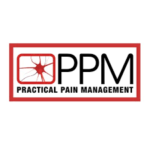How Much Buprenorphine is Lethal?

A drug overdose is taking too much of a substance, whether it’s prescription, over-the-counter, legal, or illegal. Drug overdoses can be accidental or intentional. They occur when a person takes more than the medically recommended dose. However, some people may be more sensitive to certain medications, so the low (more dangerous) end of a drug may be toxic for them; a dose that is still within the range of acceptable medical use may be too much for their bodies to handle.
An overdose can lead to serious medical complications, including death. The severity of a drug overdose depends on the drug, the amount taken, and the physical and medical history of the person who overdosed.
What is Buprenorphine?
Buprenorphine is a medication approved by the Food and Drug Administration (FDA) to treat Opioid Use Disorder (OUD) as a medication-assisted treatment (MAT). As with all medications used in MAT, buprenorphine should be prescribed as part of a comprehensive treatment plan that includes counseling and other behavioral therapies to provide patients with a whole-person approach.
Buprenorphine belongs to a class of drugs called mixed opioid agonist-antagonists. It helps prevent withdrawal symptoms caused by stopping other opioids. It is used as part of a complete treatment program for drug abuse (such as compliance monitoring, counseling, behavioral contract, lifestyle changes).
Buprenorphine is the first medication to treat OUD that can be prescribed or dispensed in physician offices, significantly increasing access to treatment.
How should buprenorphine be used?
Buprenorphine comes as a sublingual tablet. The combination of buprenorphine and naloxone comes as a sublingual tablet (Zubsolv) and as a sublingual film (Suboxone) to take under the tongue and as a buccal film (Bunavail) to apply between the gum and cheek. After your doctor determines an appropriate dose, these products are usually taken once a day.
Suboxone, Bunavail, and Zubsolv contain different amounts of buprenorphine and naloxone, so they are not interchangeable. The dosing below is what’s typical for people who are dependent on short-acting opioid medications or heroin.
Suboxone film
• Day 1: You will typically start with films that contain either 2 mg of buprenorphine and 0.5 mg of naloxone or 4 mg of buprenorphine and 1 mg of naloxone. The typical starting dose is 1 film dissolved under your tongue (sublingually) once, then 1 to 2 films every 2 hours until you reach a total daily dose of 8 mg/2 mg (buprenorphine/naloxone).
• Day 2: Take up to 16 mg/4 mg (buprenorphine/naloxone) sublingually as a single daily dose.
• Day 3 and onwards: Your provider will continue to adjust your dose until you reach a maintenance dose. The recommended target dose for maintenance is 16 mg/4 mg (buprenorphine/naloxone) sublingually or placed against the inside of your cheek (buccally) as a single daily dose.
Zubsolv tablet
• Day 1: You will typically start with tablets that contain 1.4 mg of buprenorphine and 0.36 mg of naloxone. The typical starting dose is 1 tablet sublingually once, then 1 to 2 tablets every 1.5 to 2 hours until you reach a total daily dose of 5.7 mg/1.4 mg (buprenorphine/naloxone).
• Day 2: Take up to 11.4 mg/2.9 mg (buprenorphine/naloxone) sublingually as a single daily dose.
• Day 3 and onwards: Your provider will continue to adjust your dose until you reach a maintenance dose. The recommended target dose for maintenance is 11.4 mg/2.9 mg (buprenorphine/naloxone) sublingually as a single daily dose.
Bunavail film
• Day 1: You will typically start with films that contain 2.1 mg of buprenorphine and 0.3 mg of naloxone. The typical starting dose is 1 film placed against the inside of your cheek (buccally) once. Repeat the dose after 2 hours to reach a total dose of 4.2 mg/0.7 mg (buprenorphine/naloxone).
• Day 2: Take up to 8.4 mg/1.4 mg (buprenorphine/naloxone) buccally as a single daily dose.
• Day 3 and onwards: Your provider will continue to adjust your dose until you reach a maintenance dose. The recommended target dose for maintenance is 8.4 mg/1.4 mg (buprenorphine/naloxone) buccally as a single daily dose.
Depending on the type of opioid that you were taking, a different option that your doctor may choose is to start you on treatment with buprenorphine and naloxone right away. Your doctor may increase or decrease your buprenorphine and naloxone dose depending on your response.
If you are taking the sublingual tablets, place the tablets under your tongue until they completely melt. If you are taking more than two tablets, either place them all under your tongue at the same time or place them under your tongue up to two at a time. Do not chew the tablets or swallow them whole. Do not eat, drink, or talk until the tablet dissolves completely.
If you are using the buccal film, use your tongue to wet the inside of your cheek or rinse your mouth with water before you apply the film. Apply the film with a dry finger against the inside of the cheek. Then remove your finger and the film will stick to the inside of your cheek. If you are to use two films, place another film on the inside of your other cheek at the same time. Do not apply films on top of each other and do not apply more than two films to the inside of the mouth at one time. Leave the film(s) in the mouth until they dissolve. Do not cut, tear, chew, swallow, touch or move the film while it dissolves. Do not eat or drink anything until the film dissolves completely.
If you are using the sublingual film, rinse your mouth with water before you place the film. Place the film with a dry finger under your tongue to the right or left of the center and hold the film in place for 5 seconds. If you are using two films, place the other one on the opposite side under the tongue. Do not put the films on top of or near each other. Do not use more than two films at one time. Do not cut, tear, chew, swallow, touch or move the film while it dissolves. Do not eat or drink anything until the film dissolves completely.
If you need to switch from one buprenorphine or buprenorphine and naloxone product to another, your doctor may need to adjust your dose. Each time you receive your medication, check to be sure that you have received the buprenorphine product that was prescribed for you. Ask your pharmacist if you are not sure that you received the right medication.
Do not stop taking buprenorphine or buprenorphine and naloxone without talking to your doctor. Stopping buprenorphine or buprenorphine and naloxone too quickly can cause withdrawal symptoms. Your doctor will tell you when and how to stop taking buprenorphine or buprenorphine and naloxone. If you suddenly stop taking buprenorphine or buprenorphine and naloxone, you may experience withdrawal symptoms such as hot or cold flushes, restlessness, teary eyes, runny nose, sweating, chills, muscle pain, vomiting, or diarrhea.
How much buprenorphine is lethal?
Taking more than the recommended amount of buprenorphine can be lethal and death has been reported from fatal respiratory depression following the ingestion of high doses of buprenorphine. Daily buprenorphine doses typically range from 8mg to a maximum of 24 to 32mg.
Buprenorphine overdose symptoms appear between 1 to 3 hours after taking the drug. The most common clinical effects of buprenorphine overdose include:
- Blurred vision
- Difficulty breathing
- Dizziness
- Drowsiness
- Lethargy
- Miosis
- Pinpoint pupils
- Sleepiness or extreme drowsiness
- Slow or shallow breathing
- Unable to respond or wake up
- Vomiting
Respiratory depression and coma are also possible following a buprenorphine overdose.
While taking buprenorphine or buprenorphine and naloxone, you should talk to your doctor about having a rescue medication called naloxone readily available (e.g., home, office). Naloxone is used to reverse the life-threatening effects of an overdose. It works by blocking the effects of opiates to relieve dangerous symptoms caused by high levels of opiates in the blood. Your doctor may also prescribe you naloxone if you are living in a household where there are small children or someone who has abused street or prescription drugs. You should make sure that you and your family members, caregivers, or the people who spend time with you know how to recognize an overdose, how to use naloxone, and what to do until emergency medical help arrives. Your doctor or pharmacist will show you and your family members how to use the medication. Ask your pharmacist for the instructions or visit the manufacturer’s website to get the instructions. If symptoms of an overdose occur, a friend or family member should give the first dose of naloxone, call 911 immediately, and stay with you and watch you closely until emergency medical help arrives. Your symptoms may return within a few minutes after you receive naloxone. If your symptoms return, the person should give you another dose of naloxone. Additional doses may be given every 2 to 3 minutes, if symptoms return before medical help arrives.
In case of overdose, call the poison control helpline at 1-800-222-1222. Information is also available online at https://www.poisonhelp.org/help. If the victim has collapsed, had a seizure, has trouble breathing, or can’t be awakened, immediately call emergency services at 911.





